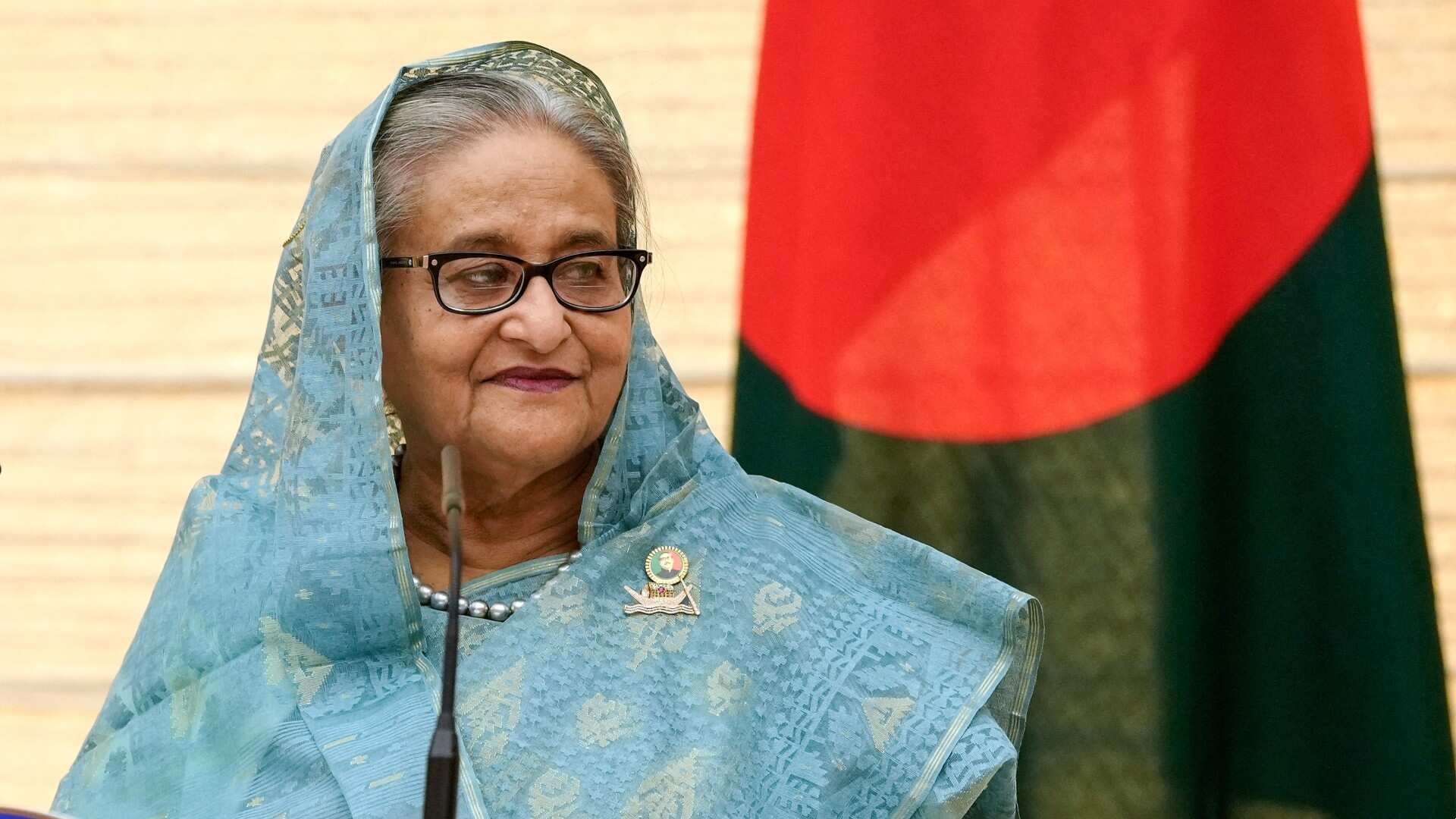Sheikh Hasina, facing a popular uprising in Bangladesh, has fled to India for safety.
Meanwhile, the International Crimes Tribunal has issued an arrest warrant against her, and efforts are underway to bring her back with the help of Interpol.
However, Delhi believes that the interim government in Bangladesh, led by Dr. Muhammad Yunus, is using this situation to build an anti-India political narrative within the country.
According to a report in Anandabazar, quoting sources from India`s Ministry of External Affairs, the actions being taken by Bangladesh are meant to send a message to the country`s political leadership.
The report suggests that India is not likely to react hastily just because a Red Corner Notice has been issued.
Instead, Indian diplomats are trying to remind Dhaka that, to revive its struggling economy and tackle future challenges, Bangladesh should focus on building a practical and cooperative relationship with India.
Pressuring New Delhi politically will not solve Bangladesh’s economic problems.
Sources also revealed that the interim government in Bangladesh is under significant pressure due to unpaid electricity bills.
The Adani Group had already reduced the electricity supply to Bangladesh by 60% from the beginning of the month because Bangladesh owed $84.6 crore.
The company has warned that if the dues aren’t paid by November 7, they will cut off the supply completely.
In response, Bangladesh’s Power Development Board has issued a new Letter of Credit for $17.3 crore to pay off part of the debt.
However, a large portion of the debt is still pending.
Bangladesh is not only dependent on India for electricity but also for other key infrastructure projects that have been critical to its development over the years.
India has provided Bangladesh with billions of dollars in loans at low interest rates for major projects like roads, railways, and ports. Bangladesh also relies heavily on India for food and pharmaceuticals.
According to figures from South Block, India-Bangladesh trade reached around $16 billion in the 2022-23 fiscal year.
One of the strongest areas of cooperation between the two countries has been in energy.
India has also been involved in oil exploration off the coast of Bangladesh through joint ventures with companies like Oil India and ONGC Videsh Limited.
The Ministry of External Affairs has also pointed out that Bangladesh is currently importing 1,160 MW of electricity from India, and the transport of high-speed diesel from India to Bangladesh has been a notable success.
However, Bangladesh’s economy is facing significant challenges due to recurring problems such as natural disasters, food security, and energy shortages.
Sources have said that India’s support is crucial if Bangladesh is to avoid an economic collapse.
Under Hasina’s leadership, the country’s foreign debt has ballooned.
Official figures show that Bangladesh owes around $9.21 billion to Japan, $5.09 billion to Russia, $4.76 billion to China, and $1.02 billion to India.
In reality, the actual debt is likely even higher.
According to reports, Bangladesh borrowed $5.63 billion between July 2023 and March 2024.
The new government will need to handle the debt left behind by the previous administration.
Experts warn that if the situation continues, it could lead to social unrest, as rising prices for basic goods like fuel and food are putting tremendous pressure on the population.
If Bangladesh’s economy were to collapse, it could become a challenge not just for India but for the entire South Asian region.
From Delhi’s perspective, instead of trying to pressure India, Bangladesh’s new government should focus on rebuilding its economy by seeking India’s help and strengthening cooperation between the two countries.














-20260226080139.webp)





-20260225072312.webp)








-20260219054530.webp)
-20260224075258.webp)





-20260221022827.webp)